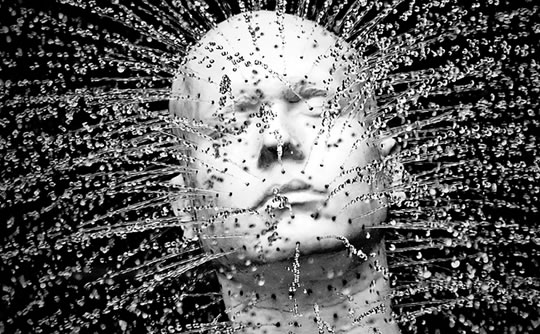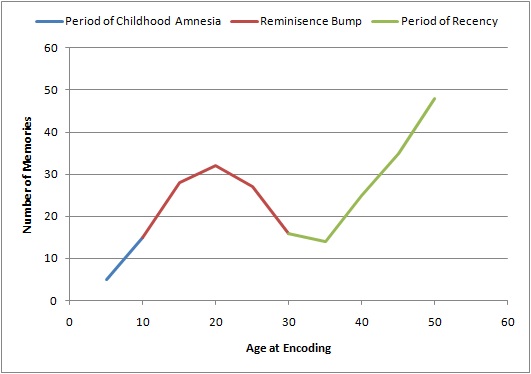Why we remember and why we forget: it’s context, fading emotions, deep processing, the ‘Google effect’, the reminiscence bump and way more…
Many people say they have bad memories, but the majority are wrong.
The way memory works can be unexpected, frustrating, wonderful, and even quirky — but not necessarily ‘bad’.
For most of us the problem isn’t with our memories, it’s with understanding how memory works.
Here are ten interesting quirks of memory which provide a better insight into what makes us remember — or forget.
1. Context is king
What we can remember partly depends on the situation and mental state we are in at the time.
This is because our memories work by association.
The context itself can refer to all kinds of things: some things are easier to remember in a certain place, others when we experience specific smells, others when we are in particular emotional states.
One striking study which demonstrates this had deep sea divers learning lists of words either 15ft underwater or on dry land (Godden & Baddeley, 1975).
It turned out that when they learned words underwater, they remembered 32% of them when tested underwater, but only 21% when tested on the beach.
Of course our memories are far more complex than lists of words: many will have all kinds of contextual hooks, but the study neatly makes the point that for memory, context is very important.
2. Google remembers for you
If you’ve ever worried about the effect the internet is having on your mind, then this aspect of memory would seem to fuel those worries.
The ‘Google effect’ is the finding that we tend to forget things which we know we can look up on the internet.
In a study by Sparrow et al. (2011) participants were manipulated into thinking they could either retrieve items they were supposed to recall from a computer, or that the items had been irrevocably deleted.
The results showed that people’s memory was worse for things they thought they could look up.
Crucially, though, despite the fact that people’s memory was worse when they could access the information, they were better at knowing where to find it.
Given that you can look most stuff up on the internet, doesn’t that mean we’ll eventually forget almost everything?
Lead author of the study, Betsy Sparrow, doesn’t see this as the beginning of the end, rather a ‘reorganisation of the way we remember things’:
“Our brains rely on the Internet for memory in much the same way they rely on the memory of a friend, family member or co-worker. We remember less through knowing information itself than by knowing where the information can be found.”
So it’s not a step backwards, but an evolution in how memory works.
3. Negative emotions fade faster
This is a simple — and wonderful — quirk of how memory works.
It’s the fact that, on average, negative emotions are forgotten quicker than positive.
A typical study asks people to write about things that have happened to them over a period of months.
Then they are asked to recall these events up to five years later.
A curious thing happens for most (non-depressed) people: the negative things are forgotten at a higher rate than the positive.
Psychologists aren’t exactly sure why this happens, but it seems to be part of our natural psychological immune system which helps protect against life’s inevitable knocks.
4. Deep processing
This is a very obvious and intuitive quirk of memory, but nonetheless continually ignored by generations of students and others who are trying to learn.
It’s the fact that the deeper a fact or memory is processed, the greater the chance of it being recalled later.
A classic study had people trying to memorise a list of words (Craik & Tulving, 1975).
Some were told to focus on surface details, like the sound of the words or how they were written. Another group, though, had to process the meaning.
You’ll be unsurprised to learn that those who thought about the meaning of the words did the best on a subsequent test.
And yet, students and other learners continue to revise by rote or by just focusing on surface details.
Looking for deeper connections is the way to more strongly fix memories in the mind.
5. Memory distortion
When a memory is ‘misattributed’ some original true aspect of a memory becomes distorted through time, space or circumstances.
Some examples that have been studied in the lab are:
- Misattributing the source of memories. In one study participants with ‘normal’ memories regularly made the mistake of thinking they had acquired a trivial fact from a newspaper, when actually the experimenters had supplied it (Schacter, Harbluk, & McLachlan, 1984).
- Misattributing a face to the wrong context. Studies have shown that memories can become blended together, so that faces and circumstances are merged.
Memory expert Daniel Schacter suggests that misattributions may actually be useful to us (Schacter, 1999).
The ability to extract, abstract and generalise our experience enables us to apply lessons we’ve learnt in one domain to another.
6. The Zeigarnik effect
The Zeigarnik effect is named after a Russian psychologist, Bluma Zeigarnik, who noticed an odd thing while sitting in a restaurant in Vienna.
The waiters seemed only to remember orders which were in the process of being served. When completed, the orders evaporated from their memory.
Zeigarnik went back to the lab to test out a theory about what was going on.
She asked participants to do twenty or so simple little tasks in the lab, like solving puzzles and stringing beads (Zeigarnik, 1927). Except some of the time they were interrupted half way through the task.
Afterwards she asked them which activities they remembered doing.
People were about twice as likely to remember the tasks during which they’d been interrupted than those they completed.
The Zeigarnik effect, therefore, is that incomplete tasks are remembered better than completed ones.
It’s pretty easy to see why that might be a useful quirk of memory.
7. Childhood amnesia
Most adults can’t remember much, if anything, from before the age of three.
It’s what Sigmund Freud first termed ‘childhood amnesia’.
A new study of childhood memory reveals that childhood amnesia sets in at around the age of seven (Bauer & Larkina, 2013).
The results showed that between 5 and 7 years-of-age, the children could remember between 63% and 72% of the events they’d first recalled at the age of three.
However, by the age of 8 or 9, the children only remembered about 35% of the events.
When children are young the hippocampus–a part of the brain crucial to memory–is still undergoing neurogenesis: new neurons are constantly being produced.
Until this process is complete we find it hard to lay down long-term autobiographical memories.
8. The reminiscence bump
While we may remember little from before around the age of seven, the teenage and early adult years are a completely different matter.
Between about 10 and 30-years-old, most adults experience some of the biggest moments in their lives, all in relatively quick succession.
There’s education, puberty, falling in love, deciding on a career, getting married, having a first child and so on.
While life’s later years can be full of happiness and fulfilment, it’s in these two decades when most people experience the largest changes to their identities, goals and life circumstances.
Naturally, then, people tend to remember this period most intensely — that is the ‘reminiscence bump’, named after the bump on the graph of people’s retrieval of autobiographical memories (in red below).
9. The consistency bias
New experiences don’t fall on a blank slate; we don’t merely record the things we see around us.
Instead everything we do, have done to us, think or experience, is affected by past thoughts and things that have already happened to us.
One strong psychological drive humans have is to be consistent.
This, then, can lead to a consistency bias: we have a tendency to reconstruct the past to make it more compatible with our current world-view.
For example, as people get older, on average, they get politically more conservative.
Despite this people report always having had roughly the same views (Markus, 1986).
10. The recall effect
Many memories which have the scent of authenticity may turn out to be misremembered, if not totally fictitious events, if only we could check.
But, does the long passage of time warp the memory, or is there some more active process that causes the change?
In one experiment participants had memories laid down in a carefully controlled way to test this out (St. Jacques & Schacter, 2013).
The results showed that people’s memories were both enhanced and distorted by the process of recall. This shows that merely recalling a memory is enough to strengthen it.
This is one aspect of the fact that memory is an active, reconstructive process; recalling something is not a neutral act, it strengthens that memory in comparison to the others.
A good memory
Hopefully these ‘quirks’ of memory help to underline the fact that some of what we think of as the disadvantages of memory are really strengths.
As the great psychologist William James said:
“If we remembered everything we should on most occasions be as ill off as if we remembered nothing.”
Image credit: kozumel


